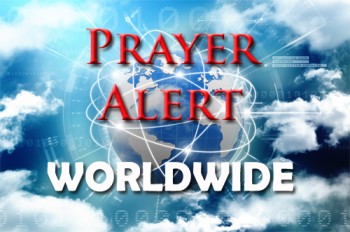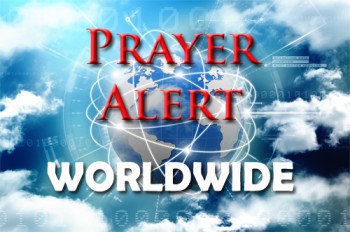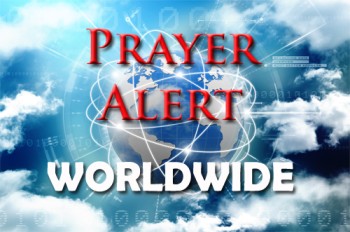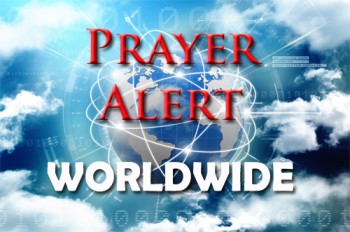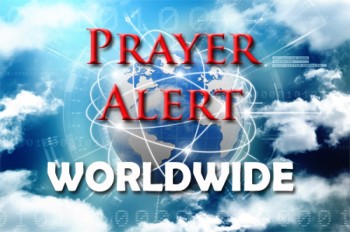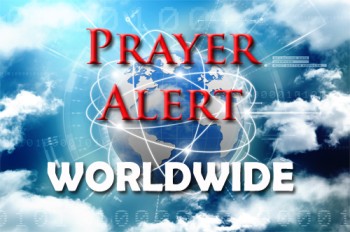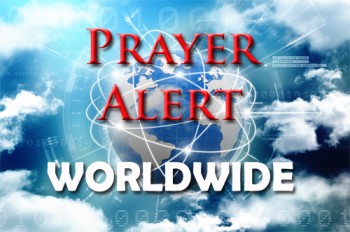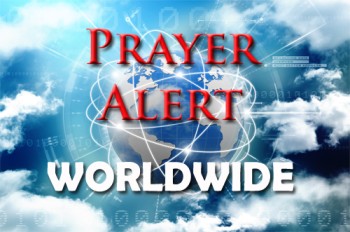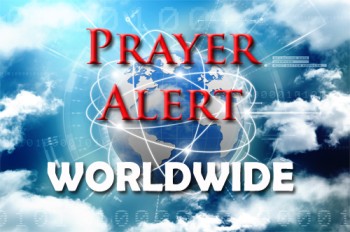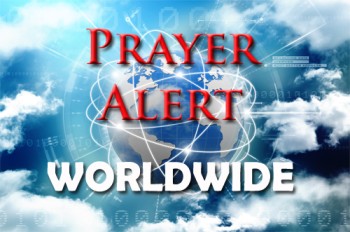Displaying items by tag: Haiti
Haiti: UN votes to create a ‘gang suppression force’
The UN Security Council has voted to expand its international mission in Haiti, transforming it into a ‘gang suppression force’ tasked with restoring order in the country. The resolution raises the force’s personnel ceiling from 2,500 to 5,550 and calls for a new UN support office in Haiti to provide logistical assistance. The mission will work with the authorities to ‘neutralise, isolate, and deter’ gangs, secure key infrastructure, and help stabilise institutions. While Haitian leaders welcomed the move as a lifeline, the Russian envoy described it as ‘an ill-conceived and rushed mandate to use force against anyone and everyone labelled with the vague term 'gangs'’. The Kenyan-led police force, deployed for the last fifteen months, remains woefully understaffed and underfunded. Haiti faces dire conditions: nearly all of Port-au-Prince is under gang control, over 3,000 were killed in the first half of 2025, 1.3 million are displaced, and millions more face hunger.
Haiti: kidnapped missionary is freed
Irish lay missionary Gena Heraty, who has served in Haiti for three decades, has been freed after nearly a month of captivity. She and several others, including a three-year-old child with a disability, were kidnapped during an armed gang attack on an orphanage outside Port-au-Prince. The NGO with which Heraty works, expressed profound gratitude for the release, saying the hostages are safe, receiving medical and psychological care, and reunited with their families. Heraty’s family issued a heartfelt statement thanking everyone, locally and internationally, who helped secure her freedom, and they requested privacy as she recovers. The case underscores Haiti’s worsening security crisis, with gangs now controlling an estimated 85% of the capital. Kidnappings remain rampant, with the UN reporting nearly 350 abductions in just the first half of 2025.
Dominican Republic: tighter controls on illegal immigration from Haiti
President Luis Abinader has introduced measures to address illegal immigration from neighbouring Haiti, where the continuing violence is forcing many to flee. The new policies, described as ‘painful but necessary’, include charging migrants for hospital services and penalising those who rent to undocumented individuals. He is also increasing military presence at the border and speeding up border wall construction. He said that his country’s resources were strained, and spoke of the burden on hospitals, schools, and security. Human rights activists have criticised the measures as discriminatory and accused the government of abusing migrants. Over 180,000 migrants have already been deported, and stricter penalties will be imposed on those who aid illegal crossings. However, this week the nation’s attention is focussed on a tragedy in the capital, Santo Domingo: at least 184 were killed and over 250 injured after a roof collapsed at a nightclub. See
Haiti: airport closed, new prime minister, gang violence
Haiti’s international airport has closed for the second time this year after suspected gang gunfire struck two US passenger planes. The UN has also paused helicopter landings, while the US embassy has warned citizens to avoid travel within the country due to unpredictable violence. Haiti’s instability, driven by rampant gang violence, has displaced over 700,000 people and claimed nearly 4,000 lives this year. Further evidence of the country’s fragility came with the ousting on 11 November of interim prime minister Garry Conille, who has been replaced by businessman Alix Didier Fils-Aimé. Many key transportation routes remain under the control of gangs who regularly kidnap bus passengers and truck drivers: many Port-au-Prince residents have no safe way out of the city. In October almost a hundred people were killed in a massacre by gang members sixty miles from the capital.
Cuba: misery caused by prolonged blackouts
Cuba has had one of its toughest weeks in years, with a nationwide blackout leaving its ten million citizens powerless for days, alongside devastation from Hurricane Oscar. For many, energy shortages have become routine, but this prolonged blackout forced people to resort to firewood when regular gas supplies ran out. The government has blamed US sanctions for hampering infrastructure upgrades, while critics argue that mismanagement has directed funds to tourism instead of energy. President Miguel Diaz-Canel warned against protests, no doubt wishing to avoid a repetition of the widespread demonstrations over similar issues in 2021. The government suspended all non-essential work and schools for a week, to avoid another collapse on the grid. Electricity generation now meets only 60-70% of demand, and there has been a 25% production drop since 2019. Hurricane Oscar’s destruction further underscored the nation’s vulnerability, leaving Cubans braced for more challenges as the crisis continues.
Haiti: nearly half the population face acute food shortages
According to the IPC, a world hunger watchdog, nearly 48% of Haiti's population faces acute food shortages. Over five million people are enduring ‘high levels of acute food insecurity’ from August 2024 to February 2025. Armed gang violence, rampant across Haiti, is a major factor contributing to the crisis. Despite international interventions and the appointment of a new government, the gangs currently control 80% of Port-au-Prince and key roads leading to the north and south of the country. The difficulties have led to high Inflation, with food costs now consuming up to 70% of household expenses. The lingering impacts of natural disasters like Hurricane Matthew and the 2021 earthquake further exacerbate the situation. A UN-backed mission led by Kenya has made some progress, but the IPC has warned that the overall crisis will likely worsen in the next eight months.
Haiti: thousands of young men eager to join military
The Haitian government has announced a recruitment drive for its military, attracting thousands of young men eager for jobs amid widespread gang violence and economic hardship. Many, like 21-year-old Maurenceley Clerge, see joining the military as a rare job opportunity in a deeply impoverished country. They want to improve their lives and serve their country, despite the risks of kidnapping, torture, or death. The army, disbanded in 1995 due to its notorious human rights abuses and involvement in coups, was reinstated in 2017 when the UN peace-keeping force withdrew from the country. The force currently has around 2,000 soldiers, but aims to more than double its size. More than 3,200 killings have been reported in Haiti from January to May, with gang violence leaving more than half a million people homeless in recent years.
Haiti: UN sends food aid for displaced
The UN has announced the delivery of aid to Haiti, which will help hundreds of displaced families due to the ongoing violence and the upcoming hurricane season. A spokesman said, ‘Two cargo flights organised by the World Food Programme (WFP) have landed in Port au Prince, carrying 55 tonnes of medicine, shelter and hygiene materials. The WFP school meals programme has distributed some 30 million meals across the country since the start of the current school year: of these, nearly 17 million have been provided through its programme which supports local farmers. The education sector has been severely impacted by the recent violence, with more than 200,000 children and 4000 teachers affected.’ Haiti’s hurricane season, which lasts from June to November, is forecast to be severe this year. A gang-fuelled crisis has devastated the country, and the UN estimates that currently 360,000 people are displaced.
Haiti: new prime minister announced
On 28 May Garry Conille was appointed as Haiti's new prime minister, following a month-long selection process after Ariel Henry resigned in April. Conille, UNICEF's regional director for Latin America and the Caribbean since January 2023, had previously served as prime minister from October 2011 to May 2012. His appointment comes amid severe gang violence in Port-au-Prince, where gangs have attacked police stations, demolished prisons, and released over 4,000 inmates. Following coordinated gang attacks on 29 February, Port-au-Prince's main airport was out of action for nearly three months. Conille has a background in medicine and public health, contributing to Haiti's reconstruction efforts after the devastating 2010 earthquake. As he assumes office, Haiti is still waiting for the UN-backed deployment of a police force from Kenya and other countries.
Haiti: uncertainty after PM’s resignation
Haiti faces uncertainty after prime minister Ariel Henry's resignation, welcomed by Haitians amid escalating gang violence. Henry, stranded in Puerto Rico, pledged to resign once a transition council and temporary leader were chosen. US officials, after talks in Jamaica, expect the council to be appointed soon. Acting prime minister Michel Boisvert has signalled his willingness to facilitate an orderly transition. Port-au-Prince shows signs of improved security; the streets are quiet and the main cargo port has been reopened, though the airport remains closed. One of Haiti’s largest TV stations has left its headquarters, citing the insecurity. In another potential setback, the plans to deploy Kenyan police officers for a UN-backed security mission are on hold pending a new interim government. Haitians hope for stability as they await a new leadership amidst ongoing challenges.
